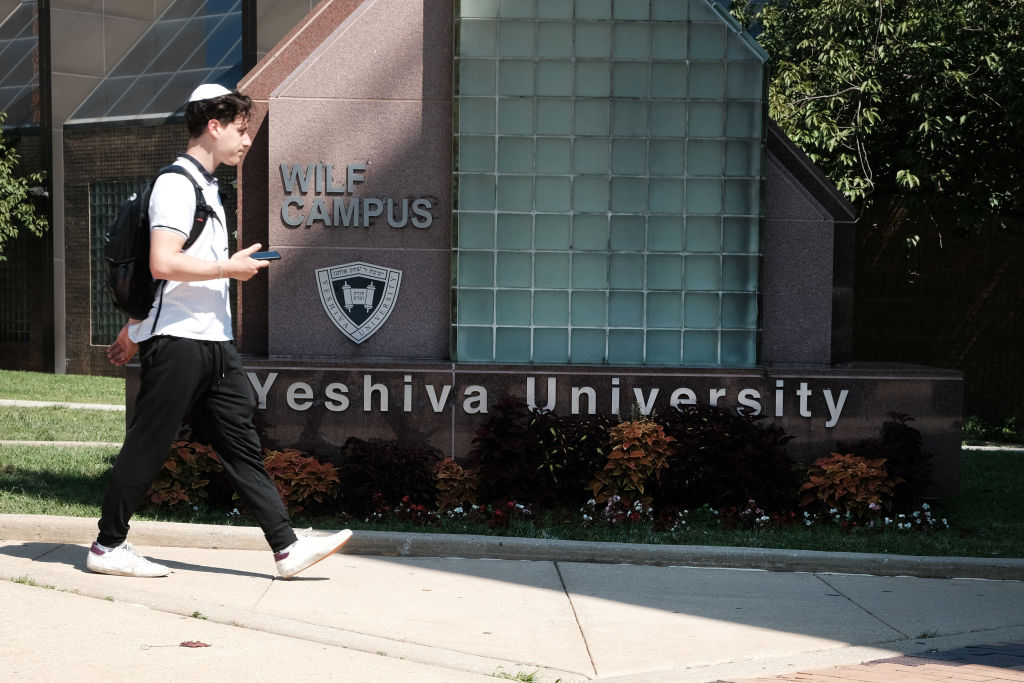Should taxpayers fund religious schools?
Oklahoma approved the nation’s first public religious charter school. What could this mean for the separation of church and state?


A free daily email with the biggest news stories of the day – and the best features from TheWeek.com
You are now subscribed
Your newsletter sign-up was successful
A school board in Oklahoma recently voted to approve public funding for a Catholic virtual charter school run by local dioceses. When it opens next year, St. Isidore of Seville Virtual Catholic Charter School, named after the patron saint of the internet, will be the nation's first publicly funded religious charter school. Its approval has raised concerns about constitutionality.
"The approval of any publicly funded religious school is contrary to Oklahoma law and not in the best interest of taxpayers," said Oklahoma Attorney General Gentner Drummond. Is he right?
A 'long tradition' in American history
There is a "long tradition in American history" of religious institutions getting public funding, executive director of the Catholic Conference of Oklahoma Brett Farley told CNN. Some public services like FEMA already rely on Catholic Charities and Baptist relief services. To suggest that a Catholic charter school is "unconstitutional is to pose another question ... where do you draw the line?"
The Week
Escape your echo chamber. Get the facts behind the news, plus analysis from multiple perspectives.

Sign up for The Week's Free Newsletters
From our morning news briefing to a weekly Good News Newsletter, get the best of The Week delivered directly to your inbox.
From our morning news briefing to a weekly Good News Newsletter, get the best of The Week delivered directly to your inbox.
There are already plenty of "critical public services" that "are supplied by faith-based groups that receive government subsidies," Jeff Jacoby agreed in the Boston Globe. Nothing in the Constitution prohibits "contracting with religious providers to help fulfill important government obligations," and a "church-run charter school is in exactly the same category." Oklahoma was correct to affirm this, "and other states should follow its lead," Jacoby said.
Baiting a legal challenge
Oklahoma Republicans have a "shameless" reason for funding St. Isidore, Amanda Marcotte argued at Salon. They hope to give the "far-right Supreme Court" an opportunity to "destroy the separation of church and state." They are baiting a legal challenge "with an eye towards giving the Supreme Court an excuse to legalize taxpayer-funded religious education" with the ultimate goal to "destroy the concept of secular education entirely."
A threat to American education
Religious charter schools threaten "to upend American education far beyond Oklahoma," warned Chalkbeat education policy reporter Matt Barnum. They could "rejuvenate religious education," particularly in Catholic schools where enrollment has been dropping for decades. If these schools successfully push the ongoing campaign to allow public funding for religious education, it could lead to "fewer students, and thus less funding, for public schools," Barnum added. "Charters of all types could be deemed private schools for legal purposes, reducing anti-discrimination protections for students and teachers."
'Bad for the church and bad for the state'
The "mistaken" decision to approve the nation's first religious charter school "split Oklahoma Republicans," David French wrote for The New York Times. Why? Because the GOP disagrees over whether to focus on preserving individual freedoms versus expanding the state's power. These tensions boil down to a "contest between liberty and authority." The state government shouldn't discriminate against religious expression, nor should it start creating religious public schools. "Clothing any church institution with state power is bad for the church and bad for the state," French added. Oklahoma conservatives "should advance their values through the exercise of liberty," but "not by breaching the barrier between church and state."
A free daily email with the biggest news stories of the day – and the best features from TheWeek.com
Theara Coleman has worked as a staff writer at The Week since September 2022. She frequently writes about technology, education, literature and general news. She was previously a contributing writer and assistant editor at Honeysuckle Magazine, where she covered racial politics and cannabis industry news.
-
 Is Andrew’s arrest the end for the monarchy?
Is Andrew’s arrest the end for the monarchy?Today's Big Question The King has distanced the Royal Family from his disgraced brother but a ‘fit of revolutionary disgust’ could still wipe them out
-
 Quiz of The Week: 14 – 20 February
Quiz of The Week: 14 – 20 FebruaryQuiz Have you been paying attention to The Week’s news?
-
 The Week Unwrapped: Do the Freemasons have too much sway in the police force?
The Week Unwrapped: Do the Freemasons have too much sway in the police force?Podcast Plus, what does the growing popularity of prediction markets mean for the future? And why are UK film and TV workers struggling?
-
 Mennonites in the spotlight over Texas measles outbreak
Mennonites in the spotlight over Texas measles outbreakUnder the Radar Close-knit religious community claims it has been made a scapegoat for wider issue of anti-vax sentiment in rural West Texas
-
 The 95% Muslim country that has banned the hijab
The 95% Muslim country that has banned the hijabUnder The Radar Outlawing the headscarf is the latest chapter in Tajikistan's clampdown on Islamic culture
-
 Supreme Court rules Yeshiva University must accommodate LBGT group, for now
Supreme Court rules Yeshiva University must accommodate LBGT group, for nowSpeed Read
